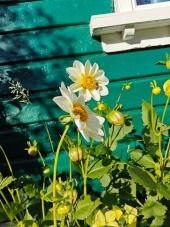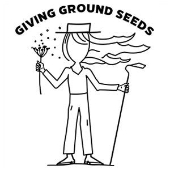
Joseph Lofthouse grew up on the farm and in the community that was settled by his ggg-grandmother and her son. He still farms there. Growing conditions are high-altitude brilliantly-sunlit desert mountain valley in Northern Utah with irrigation, clayish-silty high-pH soil, super low humidity, short-season, and intense radiant cooling at night. Joseph learned traditional agricultural and seed saving techniques from his grandfather and father. Joseph is a sustenance market farmer and landrace seed-developer. He grows seed for about 95 species. Joseph is enamored with landrace growing and is working to convert every species that he grows into adaptivar landraces. He writes the Landrace Gardening Blog for Mother Earth News.
Farming Philosophy
Promiscuous Pollination and ongoing segregation are encouraged in all varieties. Joseph's style of landrace gardening can best be summed up as throwing a bunch of varieties into a field, allowing them to promiscuously cross pollinate, and then through a combination of survival-of-the-fittest and farmer-directed selection saving seeds year after year to arrive at a locally-adapted genetically-diverse population that thrives because it is closely tied to the land, the weather, the pests, the farmer's habits and tastes, and community desires.
Joseph lives under a vow of poverty and grows using subsistence level conditions without using cides or fertilizers. He prefers to select for genetics that can thrive under existing conditions. He figures that it is easier to change the genetics of a population of plants than it is to modify the soil, weather, bugs, etc. For example, because Joseph's weeding is marginal, plants have to germinate quickly, and burst out of the soil with robust growth in order to compete with the weeds.
Biodiversity







